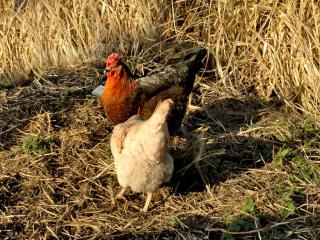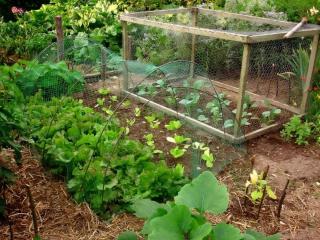

Raising chickens certainly provides you with fresh eggs, but that’s not all! Did you know that chicken manure also greatly benefits your garden?Rich in nitrogen, this manure quickly piles up. Instead of throwing it away, use it as a premium quality fertilizer to amend the soil of your vegetable garden, orchard, and even your ornamental garden. So here are all our tips on how to use chicken manure in your garden.
Chicken droppings are rich in nutrients and trace elements. Each type of nutrient is present to a point that chicken manure is even considered an NPK fertilizer:
Of these three nutrients, note that nitrogen is the most present. Of all animal droppings, chicken manure is even the richest in nitrogen.
In addition to calcium, sodium, sulfur, zinc, magnesium, copper and iron, it is also a significant source of trace elements. All these characteristics allow you to improve the quality of your soil, increase its pH, and even improve its structure.
Some precautions must be taken when using chicken manure. Indeed, an overdose of nitrogen can burn the roots of your plants.
As a result, use it sparingly, never pure, and only on the plantings for which it can be beneficial.
Among the plants that love nitrogen are:
 leaf vegetables (lettuce, spinach, cabbage, etc.)
leaf vegetables (lettuce, spinach, cabbage, etc.)On the other hand, chicken manure must not be used on legumes (peas, beans, lentils, broad beans), because these are already capable of capturing nitrogen present in the air. Likewise, avoid it on fruit vegetables (tomato, zucchini, eggplant, etc.) since the extra supply of nitrogen will favor leaf growth at the expense of fruit.
As we saw earlier, you should never incorporate pure chicken manure into the garden soil. You have two options here: drying and composting.
In the summer, dry chicken droppings for 45 days, in a space sheltered from moisture and well-ventilated. If you dry in the winter, you’ll need at least three months to achieve the same result. In both cases, there’s no need to remove any straw that’s often mixed in with the chicken droppings. When dry, crush the droppings into a powder. Then mix this fertilizer with garden soil at a ratio of 1/3 droppings powder to 2/3 soil.
To compost your chickens’ droppings, mix them with your carbon-rich organic waste (dry leaves, lawn clippings, pruning branches). Ideally, alternate layers of droppings and organic waste. Water the compost every 10 days. After 6 to 12 months, your compost is ready for use.

→ Read also:
You said “water your chicken compost every 10 days” which does not work in every climate. I live in the high mountain desert of New Mexico. Arizona has the same problem. And if you live in the high humidity areas of the gulf coast it might be less. What climate zone are you talking about?